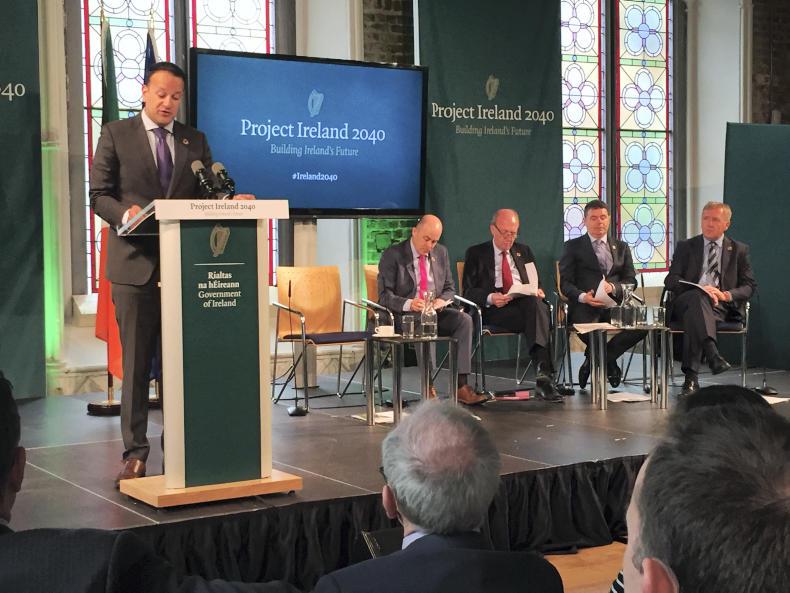“Anyone with an innovative idea to meet our climate and efficiency targets” will be able to apply for a new €500m Climate Action Fund in the coming weeks, Minister for Climate Action Denis Naughten has announced.
He said the funding, which is part of Project Ireland 2040, will support projects such as those “heating our homes and businesses using farm and food waste”.
His Agriculture colleague Michael Creed encouraged applications and said supported projects “would crystallise a future in which biogas is produced from agricultural residues, or where our homes and farms become net exporters of electricity through the adaptation of smart metering, smart grids and small-scale renewable technologies”.
Minister Naughten also said that he expected a Government decision on the much-awaited Renewable Electricity Support Scheme (RESS) “before the summer recess” and the introduction of resulting subsidised rates in the second half of this year or in 2019. The last similar scheme closed at the end of 2015 and RESS will offer the first ever support for solar energy in Ireland, with many photovoltaic panel developments planned on farmland.
Minister Naughten said the scheme would include provisions for local communities to “invest in, and own, and financially benefit from, renewable energy projects, in their area”.
The RESS and the separate Support Scheme for Renewable Heat (SSRH) due to open this year will be crucial in meeting increasingly stringent EU targets. Negotiators from the European Parliament, Council and Commission have now reached agreement on a new Renewable Energy Directive to raise the share of European energy from renewable sources to 32% by 2030. Ireland achieved 9.5% in 2016 and is likely to miss its existing 2020 target. The same applies to greenhouse gas emissions obligations, one-third of which come from agriculture here.
The Climate Action Network Europe ranked Ireland second-worst in the EU for its progress towards targets this week.
The €500m Climate Action Fund is on a similar scale to the estimated annual cost of penalties Ireland will have to pay for missing its targets from 2020.
Industry sources have called on the Government to spend this money on de-carbonising the economy now rather than on fines later.
Further debates will develop at a series of National Dialogue on Climate Action public meetings starting this Saturday in Athlone.










SHARING OPTIONS